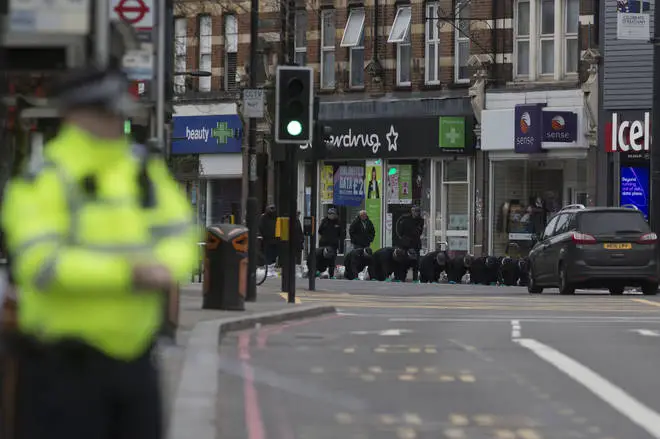
Ali Miraj 1pm - 4pm
24 August 2020, 06:30

More than half of news stories in the UK which mentioned terror, terrorists or terrorism also referred to Muslims or Islam, a new report has found.
This is almost nine times the amount perpetrators were identified as "far-right", "neo-Nazi" or "white supremacist", the analysis by the Muslim Council of Britain's Centre for Media Monitoring (CfMM) said.
The report, published on Monday, said that media coverage of terrorism has been "consistently inconsistent".
But there have been improvements following the Christchurch attack in which Brenton Tarrant killed 51 Muslim worshippers, it added.
Rizwana Hamid, director of CfMM, said there was a "disproportionate focus" on Muslims and that headlines using terms such as "Allahu Akbar" implied that "religion is always the motivator".
She added: "Whilst there now appears to be a recognition of the importance of consistency and the scale of the far-right threat amongst the broadcasters, and most of the press, there is still a long way to go.
"Inconsistencies remain, with a disproportionate focus on Muslims.
"Worst of all, headlines using religious terms such as 'Allahu Akbar' imply that religion is always the motivator, ignoring other factors such as criminal history and mental health issues which may be at play, and which are often mentioned when the perpetrator is not Muslim.
"However, in our interaction with editorial directors, managing editors, security correspondents and senior producers, there has generally been a willingness to reflect, and we hope our recommendations help improve standards for us all."

Counter Terrorism Release Cinema Advert
The report, How The British Media Reports Terrorism, was based on an analysis of 16 terrorist attacks between 2015 and 2020 in America, Britain and Europe as well as the Christchurch attack.
The CfMM analysed more than 230,000 articles published in 31 mainstream British news websites, magazines and newswires, looking at the inconsistencies in the coverage of terrorist attacks depending on the background of the perpetrator.
The report also found that between October and December 2018 at least one in four online articles mentioning one or more identifiers of Muslims or Islam fell under the theme of terrorism or extremism.
A statistical comparison of terror attacks in the last 18 months also showed a "reluctance" to label white supremacist attacks as "terrorist attacks" compared with "so-called Muslim counterparts", it added.
But it said "significant improvements" had been made in the last year, with the terms "terror", "terrorism" and "terrorist" accompanied by Islam and Muslim only twice as often as "far-right", "neo-Nazi" or "white supremacist" in 2019.
The report sets out a number of recommendations including that UK media outlets adopt a "transparent and public" definition of terrorism that is applied consistently, avoid using headlines with the term "Allahu Akbar" as "shorthand" for motive, and avoid platforming far-right and white supremacist voices except where views can be contextualised and "sufficiently challenged".